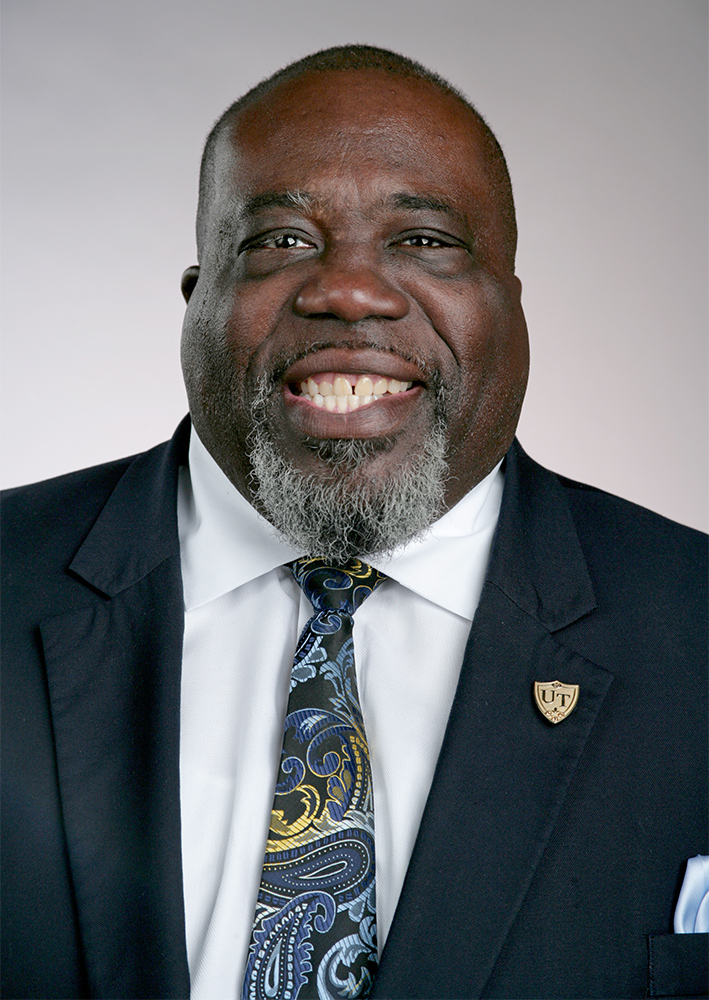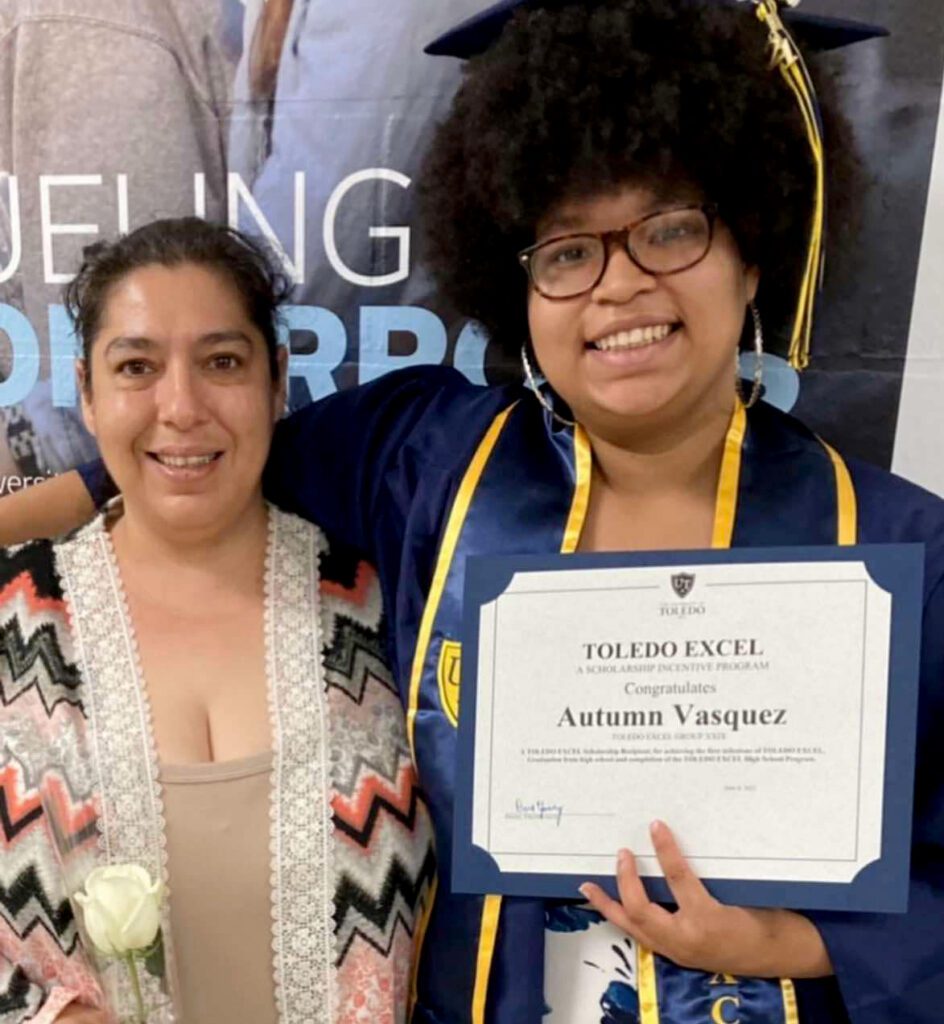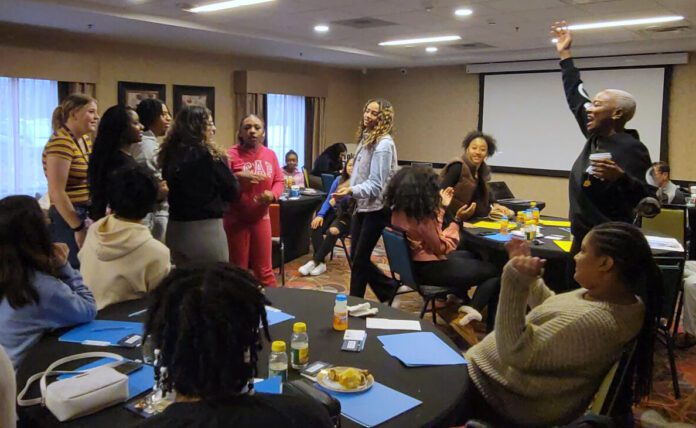TOLEDO — For more than three decades, the Toledo Excel program has provided opportunities for underrepresented students, helping them succeed academically and professionally and preparing them for the future.
Founded in 1989 by Dr. Helen Cooks and local educators, Toledo Excel started as an initiative to inspire and motivate young minds in our community. Today, the program remains a beacon of hope, offering scholarships, leadership training and career-building experiences to students.

David Young, executive director of multicultural student success at the University of Toledo and director of Toledo Excel, ensures students receive invaluable opportunities and resources for success.
“From many years of attending the annual event, I’ve had the opportunity to receive advice and inspiration from the stories of industry leaders, such as Exonerated Five member Yusef Salaam, award-winning author Jason Reynolds, and Disney star Diane Guerrero of ‘Encanto,’” said Autumn Vasquez, Toledo Excel Group XXIX, graduate of 2021.
“These moments are truly inspiring for me, and the event sheds light on the resilience, intelligence and potential of the University of Toledo and Toledo high school students each year,” said Vasquez, a Toledo Early College graduate.
Students enter the Toledo Excel Program near the end of eighth grade, beginning their journey in the Basics Plus institute, which strengthens skills in math, science and English. First-year students spend time at the University of Toledo’s College of Engineering, where they are mentored by Toledo Excel alumni.
During the summer, alumni and team leaders live in residence halls alongside students, fostering leadership skills and reinforcing a sense of community.
Second-year students participate in the Careers and Leadership institute, which focuses on critical thinking, analytical reasoning and leadership skills.
Third-year students study social issues, human rights and their rights as U.S. citizens through the Civil Rights and Human Rights Institute.
Young said last year’s students examined Chicago’s economic disparities, human rights issues, and historical context to better understand the city’s successes and challenges.
Senior-year students expand their knowledge beyond national borders through the Global Diversity institute, analyzing global economics and how the U.S. interacts with the rest of the world.
Toledo Excel has a 97 percent high school graduation rate and an 85 percent college graduation rate—figures that surpass standard graduation rates for students outside the program.
“And so I think that’s why Excel students have been so successful,” Young said. “It’s that there has been that consistency in developing them to understand ‘yes, you’re headed toward college, and here’s how you’re gonna be successful,’ and they begin to be introduced to that before they even start high school.”
Students in the program contribute to their communities through service, completing at least 25 hours of community service per year. Many exceed that requirement, serving not only locally but internationally.
“You know, all places that the program visited, they didn’t just visit those places as a tourist, but actually contributed, helped build orphanages or supply library books and supplies for libraries in South Africa,” Young said. “Worked and help build orphanages in Ghana… ambassador work in China. So, like I said, it’s kind of national and even international reputation.”

Despite its longtime success, Toledo Excel faces uncertainty due to rising political challenges surrounding DEI initiatives. Senate Bill 1, which passed in Ohio this year, has raised concerns about the future of programs dedicated to supporting underrepresented students.
“With the recent nationwide attacks on diversity, equity and inclusion, I have been afraid for the future of the Toledo Excel program,” Vasquez admitted.
“The leaders of the program work hard day in and day out to ensure minority students have the access and resources to earn degrees. Without their support, many of us would go unheard and overlooked when it comes to post-secondary education.”
Young acknowledged the concerns but remains optimistic.
“You know, of course, it was a concern with the things that have been coming out of Washington, DC, and then what was created with the Ohio State legislature with Senate Bill 1,” Young said. “But the University of Toledo has really stood behind the program, and so we’re moving on. We haven’t had a pause and we’re continuing to serve students.”
Toledo Excel will induct 60 new students, known as Group 37, at its ceremony on June 8, which will also serve as a graduation for students completing the program.
“I hope the program receives the support it needs to stick around for many years to come,” Vasquez said. “That way, more underrepresented students can receive the support they need and deserve.
“I urge Toledo youth to apply for the Toledo Excel program and take their education and future seriously—it is up to you to create your own path and take advantage of the resources available to you.”





















